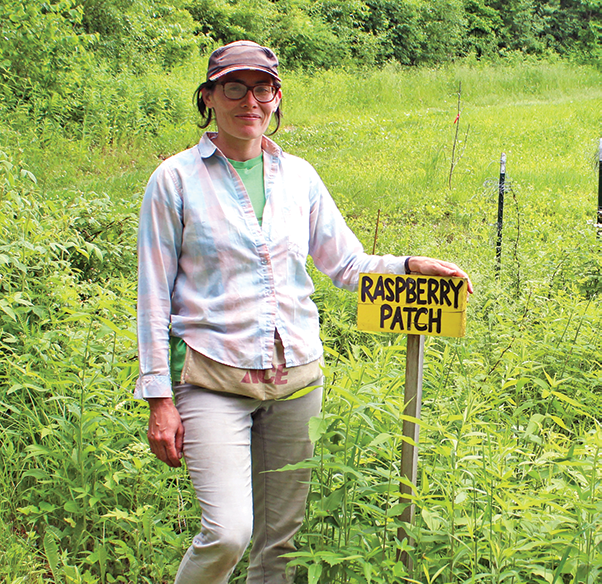Bounty Garden is good for students and other living things: Meet sustainable garden manager Amanda C

Talking to Amanda Chu frequently involves seedlings, orioles, bare feet—and surprises.
Chu manages NWTC’s Bounty Garden—a 2 ½ acre urban farm on the grounds of the Green Bay Botanical Garden. It is where Sustainable Food and Agriculture System students learn to grow and market sustainable produce, flowers, plants and other products.
It is a resource not many people expect to find in Green Bay.
“NWTC was one of the first few colleges to start organic agriculture education in the United States,” she said.
Chu and Sustainable Agriculture instructor Val Dantoin are keeping the garden and its lessons at an elite level, partly through partnerships with growers, chefs and seed breeders at places like the University of Wisconsin-Madison.
“We find out what varieties are working and characteristics of certain varieties,” Chu said. “If there’s a flavor issue, we can pinpoint it and hybridize. We find out advantages of organic versus conventional methods.”
Chu became interested in organic agriculture in college by accident while earning her degree in health promotion and wellness.
“Between taking environmental science classes and food ecology, I had an ‘Aha!’ moment. It all kind of clicked. Growing our own food was important and it was the way I could do my part to change the world for the better.”
After graduation, she and her husband signed on with Worldwide Opportunities on Organic Farms to learn about agriculture in Central America and Southeast Asia. WWOOF is a worldwide movement linking volunteers with organic farmers and growers to promote cultural and educational experiences.
“We were able to travel the world and come to understand all these different cultures through the lens of what organic and sustainable farming means to those countries and regions,” Chu said.
As a woman of Hawaiian, German, Mexican and Chinese descent, Chu draws from a rich cultural heritage. Her background is the soil that helped her interest in gardening grow. “I grew up with my grandparents from the island, so we had papaya trees growing in the back yard, pineapple, some citrus, coconuts, and then herbs,” she said. “My grandpa had a big compost pile in the back, and I thought those things were super normal.”
Chu’s students, she said, see sustainable agriculture as part of a world view, rather than a job, which leads them to explore topics like the relationship between food and inclusion.
“It seems students who are attracted to sustainable food systems have a whole lifestyle that reflects their values and ethics as people,” she said. “It’s more than a hobby or career choice that way.”
The garden is not the only thing Chu sees growing, though—students are flourishing. Often she said, she witnesses students who come into the program a little timid, leave with a new sense of confidence.
“When you’re working with the soil and working with your hands, something magic happens,” she said.
It’s a magic Chu hopes more people will get to experience, as the benefits of sustainable growing, she said, go far beyond food.
“If people were more involved with this sort of enterprise, I think we’d have a stronger shared sense of responsibility to protect the environment. We’d feel more empowered to take back some control over our food that we consume and the time we carve out in our messy busy lives to prioritize it. We’d support others who are trying to prioritize it,” she said. “We could be making a shift as a whole culture to be more supportive.
“If more people could be involved in this, it would just be a better world.”